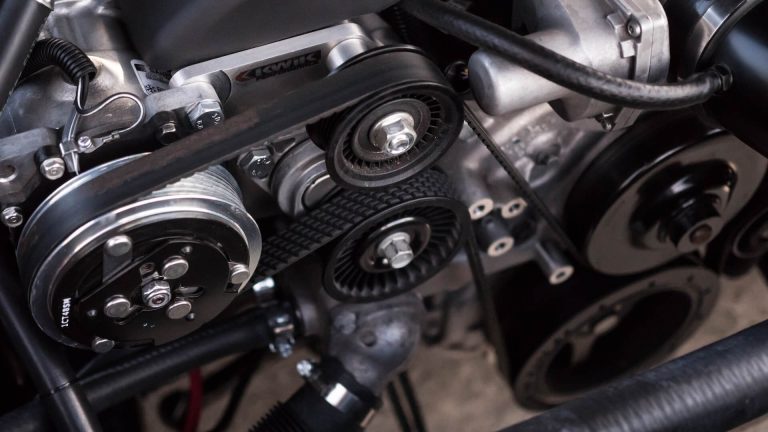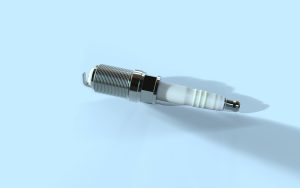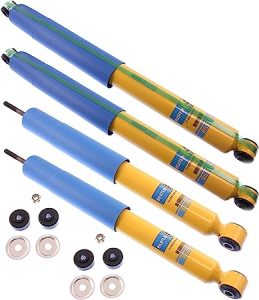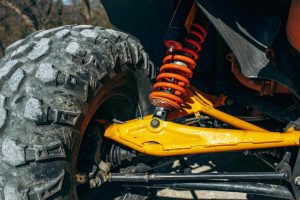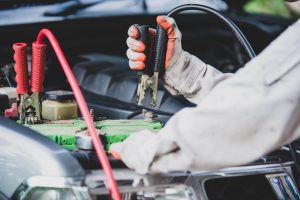No one wants to be disturbed by a clanking sound from their car’s AC. If you’ve been experiencing irritating and consistent noise, it is essential to intervene in order to avoid further suffering or damage to your vehicle. Don’t let your car be a victim of the summer heat – learn how to quiet a noisy car ac compressor? with this blog post! We’ll cover some of the most typical sounds you may hear from an AC compressor, as well as provide helpful troubleshooting tips and advice for fixing any issues so that your car stays cool throughout the warmer months.
Table of Contents
ToggleHow to Solve Humming Noises?
The sound of humming coming from your car’s AC compressor can be annoying and distracting. If the sound lingers for an extended period, instead of hurrying to a mechanic’s shop right away, let us explore what could be causing this issue and some basic tips you can try!
What is the Cause of Humming Noises?
Humming noises in your AC compressor are often caused by a faulty fan motor or a belt that has come loose. The fan motor runs the fan blades that help circulate the coolant throughout the system, while belts provide power to various components like the compressor and alternator. If none of these parts is damaged or not working correctly, it can cause a humming noise.
Troubleshooting Tips
Before taking your car to a mechanic, consider these troubleshooting tips:
- Inspect the fan blades: If you can access them easily, ensure there is no debris or damage that may be preventing their proper working. Clear away any trash and make sure they are spinning soundlessly without creating odd noises.
- Check the belt tensioner pulley: An improperly adjusted pulley can cause an AC compressor to hum loudly. Ensure all of the bolts are tight and that there’s no visible wear on any of the parts.
- Check for leaks: Leaks in your system can cause low refrigerant levels, which can lead to noisy operation. Look around your system for any signs of leaking coolant or oil. If you find any leaks, have them repaired right away so they don’t damage other components in your system.
How to Fix Rattling Noises?
Don’t be alarmed if an annoying noise is emanating from your AC compressor. It’s usually a straightforward problem that can be quickly fixed with some expert guidance. Keep reading and find out the root of this irritating sound, as well as easy-to-follow instructions for getting rid of it!
What Causes Rattling Noises?
Rattling noises coming from an AC compressor can be caused by a range of reasons, such as loose or deteriorated parts, foreign objects lodged in the appliance, and insufficient lubrication. Most times, these three causes are to blame for this aggravating noise.
Troubleshooting Tips
Don’t let the rumbling sound from your AC compressor stress you out! We have gathered a few useful steps that can assist in identifying the cause of this issue swiftly and without much fuss, enabling you to locate the answer and get it fixed with minimal effort.
- Check for Loose Components – First and foremost, check for any loose components that could be causing the rattling sound. This includes anything from screws and bolts to pulleys and belts. Tighten up any loose parts that could be causing the sound with a wrench or screwdriver if necessary.
- Clean Out Debris – If there is debris lodged in your AC compressor system, it can cause rattling noises when it gets stuck between moving parts or against other objects within the system itself. Use compressed air or a vacuum cleaner with an appropriate attachment to clean out any debris that may have gotten lodged inside. Be sure to turn off the power to your unit before attempting this step!
- Lubricate Moving Parts – If none of these steps works, then chances are your unit needs more lubrication on its moving parts. Use a light oil such as WD-40 or 3-in-1 oil spray directly onto the areas where friction occurs most frequently (or where you hear the noise coming from). After applying lubricant, start up your unit again and see if the sound persists—if not, then you’re good to go!

How to Fix Squealing Noises?
If you hear a loud, high-pitched squeal emanating from your vehicle’s air conditioner compressor, it is likely signalling some type of issue. To make sure that you can keep enjoying the cosy temperatures within your automobile again soon, it is imperative to understand what has caused this noise and how to address it accordingly.
What Causes It?
One of the most common causes of squealing noises in an AC compressor is worn or failing belts. The belt is used to power the compressor, and when it wears out, it can start to make loud squeaking sounds as it moves around the pulleys. This sound tends to reach its peak volume when the air conditioner is in use, as that’s when more energy flows through the belt. Another common cause of squealing noises may be a faulty bearing.
If there’s a problem with one of the bearings in your AC compressor, it can cause a squeal that gets progressively louder as time goes on due to metal grinding against metal.
Troubleshooting Tips
If you suspect that one of these two problems is causing the squealing noises, there are a few things you can do to check for sure. First, check for any visible signs of wear on the belt or any other components in the car’s air conditioning system. You may also want to try spraying some lubricant onto the pulleys and belts to see if that helps reduce any noise coming from them. Lastly, if all else fails, take your car to a certified mechanic who can diagnose and repair whatever issue might be causing these annoying noises.
Also Read: Car Shakes When AC Is On

How to Fix Banging or Hammering Noises?
As a car enthusiast, you want your vehicle to operate efficiently and quietly. When there’s an issue with your ac compressor, it can create banging or hammering noises – an unmistakable sign of trouble. To get back up and running again, you’ll need to diagnose the issue in order to identify its root cause before tackling any troubleshooting measures.
What Causes It?
The most common cause of banging noises coming from your ac compressor is an unbalanced system. This means that there is not enough pressure in the system, resulting in the compressor not operating correctly. This can be caused by a number of things, such as low refrigerant levels, a faulty condenser fan motor, or even a worn-out piston ring seal. Additionally, if the compressor itself is worn out, it can also lead to unbalanced pressure, which will result in banging noises coming from the unit.
Troubleshooting Tips
If you are hearing banging noises coming from your ac compressor, then you should first check for any issues with the refrigerant levels in your system. This can be done by taking a look at your vehicle’s service manual for specific instructions on how to check for low refrigerant levels. If this does not solve the problem, then you may need to have a professional look at it, as they will be able to diagnose and repair any issues with more accuracy than you.
Additionally, if your condenser fan motor has gone wrong or if there is a worn-out piston ring seal that needs replacing, then these repairs should also be done by a professional.
How to Fix Grinding or Rubbing Sounds?
Hearing grinding or rubbing sounds coming from your car’s air compressor can be alarming and frustrating. These noises can make it difficult to pinpoint the source of the problem and could even lead to costly repairs if not addressed quickly. Before you book an appointment with a mechanic, let’s take a look at what could be causing these sounds and how you can troubleshoot them yourself.
What Causes Grinding/Rubbing Sounds?
There are several possible reasons why your air compressor is making these sounds. The most common cause is that the air compressor’s bearings are worn out or damaged due to dirt, dust, or other debris that has accumulated over time. Another possibility is that the belt may be worn out or has become loose due to excessive use.
If the belt isn’t correctly aligned, it can cause friction between the pulley and belt which will lead to a grinding sound. Lastly, if there is not enough oil in the air compressor, this can also cause grinding and other noise issues as well.
Troubleshooting Tips
If you hear grinding or rubbing noises coming from your air compressor, one of the first steps should be checking for any visible signs of damage, such as cracks or splits in the belt or pulley. If nothing appears to be wrong, then it may be time to check for any debris that has built up over time; this includes dirt, dust, rocks, leaves etc.
Be sure to wear protective gear when inspecting your air compressor, as these particles can quickly get into your eyes or skin if you’re not careful! Once all of these things have been checked, then it’s time to add oil if needed and make sure that everything is in proper alignment so that no further problems arise in the future.
Also Read: Temporary Fix for Crankshaft Position Sensor
Final Thoughts
How To Quiet a Noisy Car AC Compressor? can be a frustrating and daunting task. However, with the proper knowledge and steps, you can quickly troubleshoot this issue yourself. Be sure to take all necessary precautions when inspecting your air compressor, and if needed, have a professional look at it for additional help. With these tips and steps, you can keep the noise of your car AC compressor to a minimum and help ensure that it is running smoothly.

